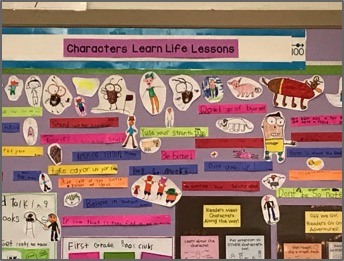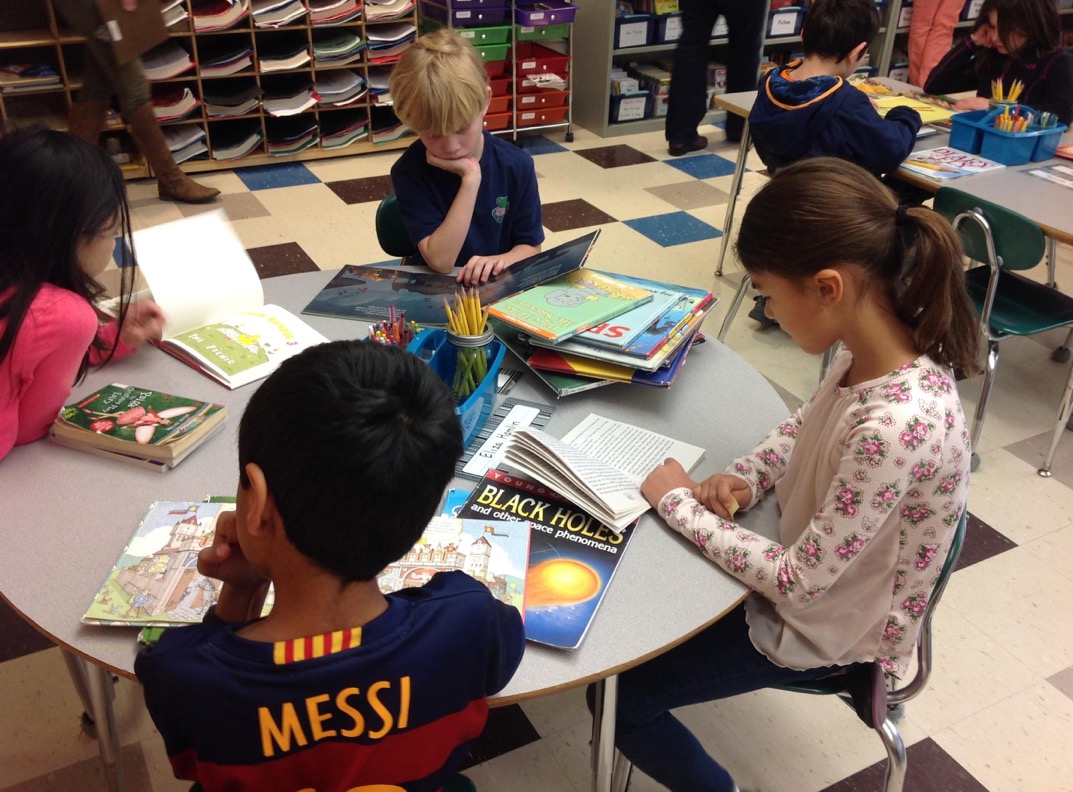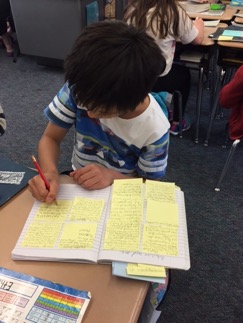Elementary Literacy Working Group, April 2025 Update
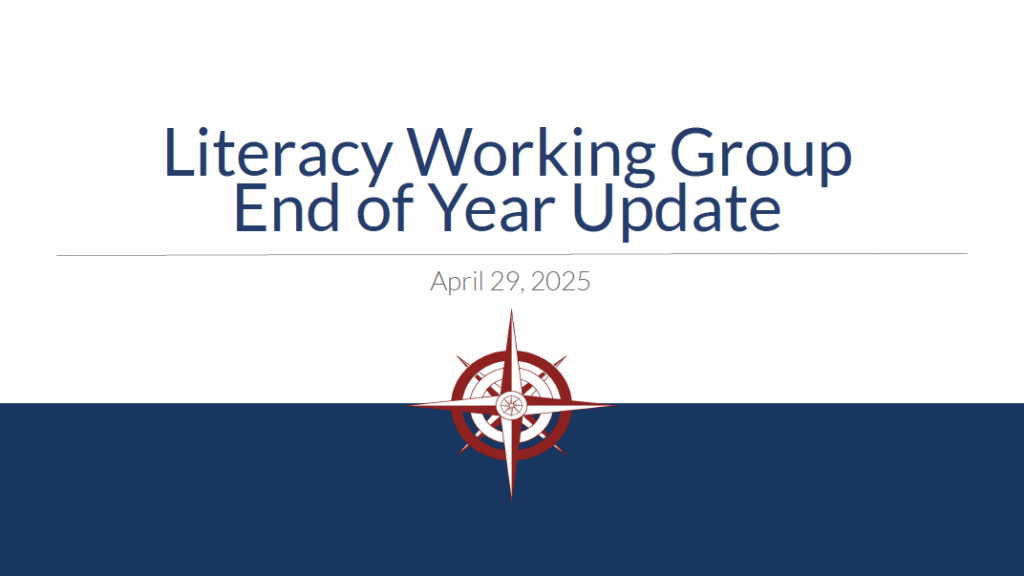
On April 29, 2025, the Elementary Literacy Working Group presented its End-of-Year findings to the WPS School Committee. A full version of the presentation can be seen here.
You may view the video of the presentation to School Committee at Wellesley Public Media.
Elementary Literacy Working Group, January 2025 Update
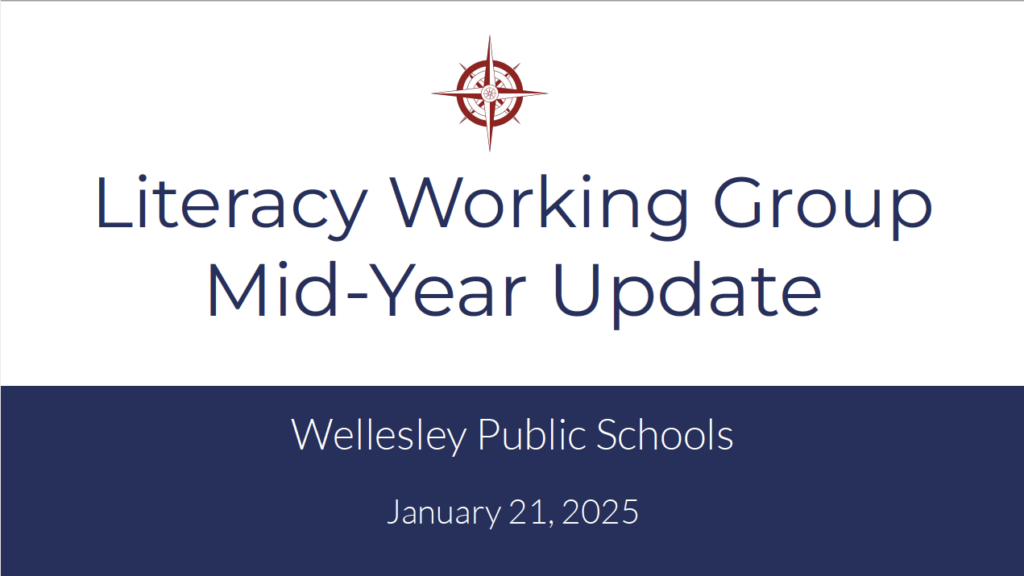
On January 21, 2025, the Elementary Literacy Working Group presented its Mid-Year findings to the WPS School Committee. A full version of the presentation can be seen here.
You may view the video of the presentation to School Committee at Wellesley Public Media.
How Has Literacy Instruction in WPS Changed?
The MA Literacy Guide, published by the MA Department of Elementary and Secondary Education, highlights 4 key shifts from outdated to evidence-based practices for early literacy that WPS adheres to in our ELA program. Click this link to learn more!
Components of the Core Literacy Block in WPS
Foundational Skills
Systematic instruction with active practice in foundational skills every day in preK–3 including Heggerty Phonemic Awareness (K & 1), Wilson Fundations and decodable texts.
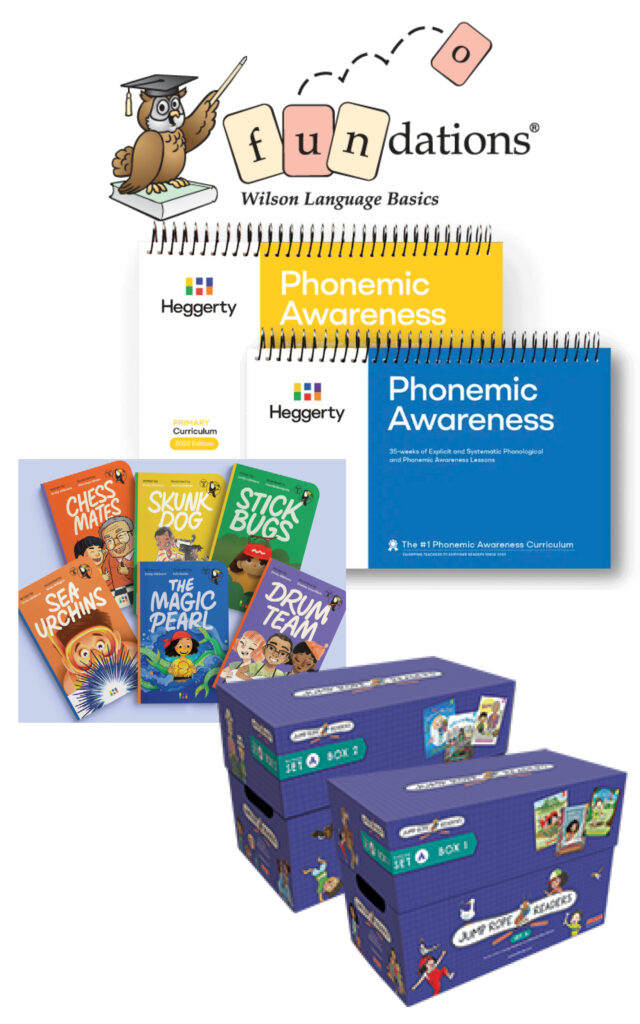
ENGAGING WITH COMPLEX TEXT
Reading, listening to, talking and writing about authentic literature every day in grades K–5 including Units of Study in Reading (revised editions, K-2) and diverse, grade level literature.
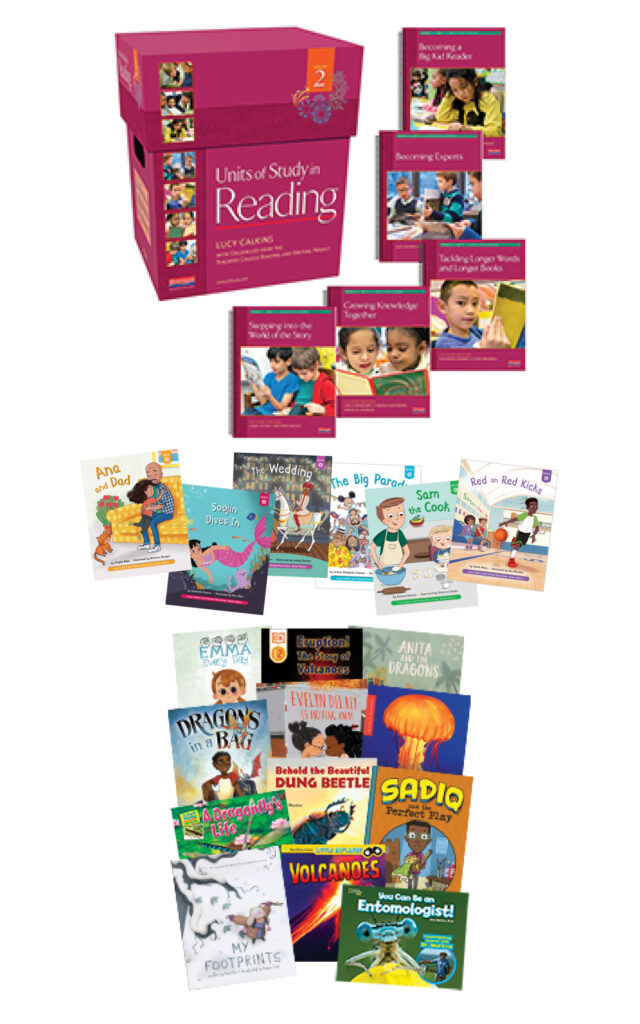
WRITING
Systematic writing instruction with active practice every day in grades K–5 including Wilson Fundations K-3, Units of Study in Writing K-5 and content based writing K-5.
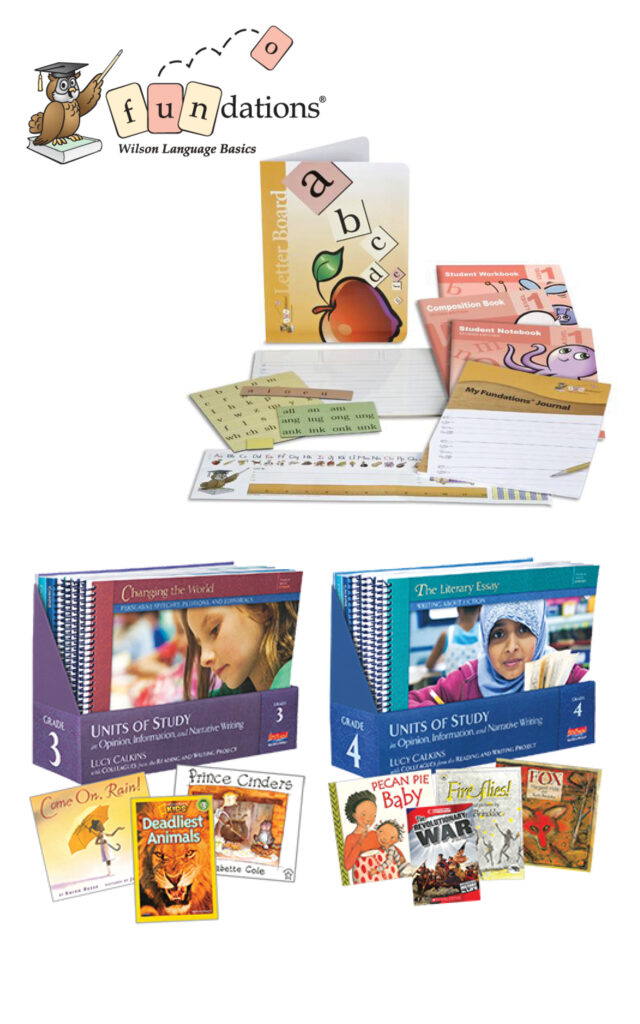
Learn about Early Literacy Universal Screening in WPS
When students experience reading difficulty:
We know that even with high quality core curriculum and instruction, there are students who experience reading difficulties, or are at risk of future difficulties. Typically, problems with phonological skills and/or phonics and decoding can be underlying causes of difficulties with fluent word reading. Problems with fluent word reading can also contribute to comprehension difficulties. Struggles with reading comprehension can also be caused by deficiencies in vocabulary, knowledge and higher level language skills.
When a child encounters reading difficulty, WPS provides a continuum of support based on a particular child’s learning profile. Support can range from targeted intervention provided by classroom teachers, reading intervention teachers or literacy specialists, to specialized instruction that is determined through the Individual Educational Program (IEP) Team process. The wide range of specialized instructional tools WPS offers (but is not limited to) includes programs such as:
Lexia Core5
LiPS:Lindamood Phoneme Sequencing Program
Orton Gillingham Approach
RAVE-O, Sonday System
Wilson Reading Program
“Learning about WPS K-5 Literacy”
This January 18, 2023 webinar provided parents and guardians with detailed information on the elementary literacy philosophy, curriculum, and assessment.
English Language Arts Overview
The goal of the K-5 Wellesley English Language Arts Curriculum is to create students who are independent, critical thinkers and confident, effective communicators by developing strong reading, writing, listening and speaking skills. We use a comprehensive approach to teaching literacy that is simultaneously responsive to the needs of each individual student. Our classrooms have a reading and writing workshop structure that is focused on the gradual release of responsibility from teacher to student, fostering independence and mastery. Each day students will actively and purposely read and write, work collaboratively with peers and participate in whole group and small group instruction.
Foundational Skills
What:
In every WPS classroom K-3, students will engage in a systematic study of phonics, spelling and handwriting using the Fundations program with ongoing end-of-unit assessments and progress monitoring. Heggerty is used to teach phonemic awareness. DIBELS 8, a dyslexia screener, is administered to all students K-2. This year, the district has also made a significant investment in decodable texts for students to practice and apply phonics skills. For students in grade 4 & 5 who need more time and practice with systematic phonics, Just Words is used in small group instruction.
Why:
Research shows that systematic, explicit instruction is the most effective way to teach children how to read. The goal of phonics instruction is to help readers quickly determine the sounds in written words. When readers encounter new words in texts they use the elements of phonics to decode and understand these words. This instruction is most effective when integrated into a literacy program that includes practice with decodable texts as well as exposure to literature with rich vocabulary. The aim is for children to read with fluency and for their minds to be freed up to think deeply about and comprehend text, which is the purpose of reading.
Engaging with Complex Text
What:
All students will engage with complex text regularly by reading and/or listening using the WPS Units of Study in Reading that have been adapted from Units of Study in Reading by Lucy Calkins and Colleagues at Teachers College Reading and Writing Project along with a wide range of curated literature. Ongoing assessment using the Benchmark Assessment System (BAS) allows teachers to understand an individual student’s development in reading accuracy, fluency and comprehension.
Why:
All students, regardless of grade or current reading ability, need access to rich, engaging, culturally diverse, relevant and authentic literature everyday in school. Research shows that providing texts that build vocabulary, knowledge and opportunities for grappling with complex ideas, supports the growth of comprehension. In addition, student engagement, agency and stamina are built by honoring student voice and choice in text selection.
Writing
What:
The Units of Study in Opinion, Information, and Narrative Writing by Lucy Calkins and Colleagues at Teachers College Reading and Writing Project is currently used in K-5 classrooms as the core writing curriculum. This curriculum includes learning progressions, rubrics, and checklists which enable teachers to set goals with students and monitor their progress toward proficiency as writers. Students study mentor texts to develop critical thinking around how writers make decisions in order to communicate with an audience.
Why:
In order to become proficient writers, students engage in explicit instruction, practice, and feedback in writing skills and craft. Oral rehearsal, feedback, revision, and the study of mentor texts contribute to the development of skilled, confident writers who can write clearly and communicate ideas in all three domains: narrative, information, and opinion.
Intervention
What:
When student performance demonstrates that additional time is necessary to master grade level skills, teachers are able to differentiate instruction and supplement the core curriculum with intervention. Intervention takes place in small groups in which the teacher works with students to solidify their understanding of a targeted concept or skill. Intervention materials at each school include: Fundations Intervention and Fluency materials, Wilson Just Words, Heggerty Bridging the Gap, a variety of decodable texts, and Leveled Literacy Intervention. Classroom teachers, reading intervention teachers, and literacy specialists provide intervention when needed.
Why:
We know that learners develop at different rates and we work hard to meet each individual student’s needs. Teaching teams monitor progress toward mastery of grade level standards. When assessment data shows that a student needs additional instruction, more practice, or new strategies in order to access the content, intervention is provided to move the learning forward.
